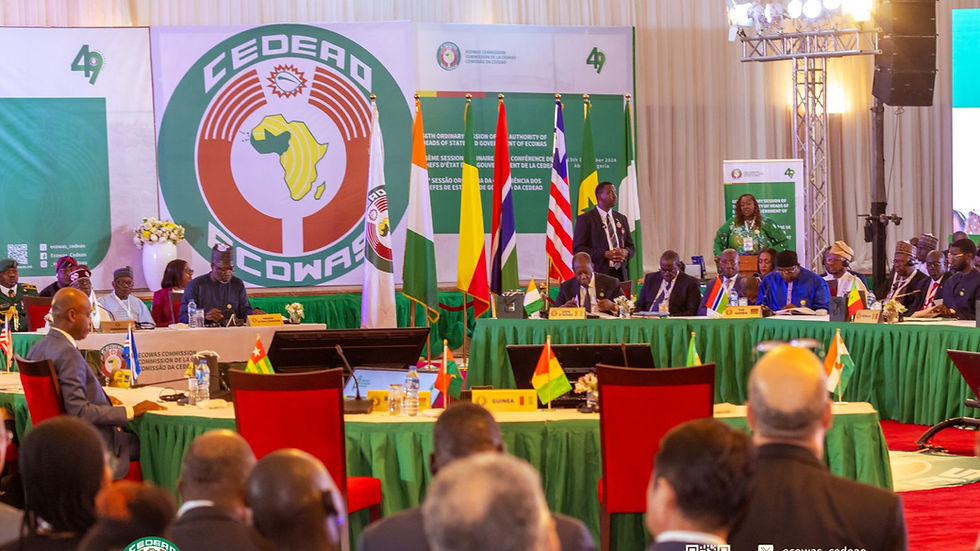The Need for Drug Policy Reform in Nigeria and West Africa
- WADPN

- Aug 9, 2016
- 3 min read

The 3rdExecutive Course on Human Rights and Drug Policy in West Africa recently hosted (25 – 30 July, 2016) by the Faculty of Law, University of Ghana emphasised the need for Policy Review within the Sub-Region.
In an increasingly interconnected world, Nigeria and the entire West African sub region has become an attractive destination for transnational organized crimes. One of such is drug trafficking.
Drug cartels have always collaborated with local partners to turn the region and their individual nations into major transit routes for illicit drugs. The region has long produced cannabis mainly for local consumption which is the most abused drug. It is now fast becoming a producer and exporter of synthetic drugs such as amphetamine-type stimulant.
According to a report by the West Africa Commission on Drugs released in 2014, drug trade in the sub-region was valued at hundreds of millions of dollars. This justifies the United Nations Secretary General, Ban Ki-moon’s claim during a UN Security Council debate in 2013 that the annual value of cocaine for example, transiting through West Africa was 1.25 billion US dollars.
This is significantly more than the annual budget of some countries in the region. Ironically, while this may sound lucrative and attractive, it is disheartening to note that virtually all the countries in the region including Nigeria are still among the poorest in the world. The growth in drug trafficking comes as the region is emerging from years of political conflict and prolonged violence.
This instability has left a legacy of fragile state of institutions and weak criminal justice systems that are vulnerable to infiltration and corruption by organized crimes. While democracy has gained ground in the continent, the prevalence of this illicit trade appears to be an eminent threat to its sustenance.
The unwholesome trade has also led to increase in money laundering. Despite efforts in establishing effective anti money laundering regimes, the needs still outweigh the capacity, resources and political will in some instances. There is an urgent need for formidable policies at national and regional levels to contain the menace.
Therefore, nations of the region should move away from the traditional ceremonial burning of seizures of illicit drugs, arrest and torture of users to focus more on drug demand reduction measures which is preventive.
The tendency to focus on numbers of seizures and arrests masks the failure to counter drug related activities of individuals in positions of public trust who do more harm to the society. As a result, it is mostly the small dealers, users or couriers that are arrested. It is also commonplace to see drug addicts being arrested by law enforcement agents with little or no counseling for them to desist from the unholy act.
It can be argued that some get involved in drug use due to pressure and ignorance. Few cases of those who came out of it through counseling show that a policy direction in this regard can save more lives. This is why the World Health Organization, WHO regards drug addiction as a disease and should be treated as a public health issue. The arrest and imprisonment of addicts will certainly increase the burden of feeding and prison congestion on government rather than solve the problem.
Criminalization of drug use and possession places significant pressure on the already over burdened criminal justice systems. More worrisome is the fact that it can cause major disease epidemics such as HIV/AIDS and hepatitis C especially among those who inject drugs with shared syringes.

Countries like Tanzania have adopted harm reduction methods such as providing syringes for drug user to reduce the spread of infections and deaths. In the light of these, the current practice of criminalizing every aspect of the drug trade should be discouraged.
Through regional partnerships such as ECOWAS and the AU, which constitute solid inter-governmental platforms, the authorities can respond to drug trafficking and use effectively. With the external bilateral and multilateral partners as well as the United Nations support, benefiting nations cannot afford to fail in drug policy review in the sub region. Leaders in the area should take advantage of world donors’ advocacy to decriminalize drug policies.
However, given the multi-faceted nature of drug problem, future progress will require enhanced cooperation between governments, specialized services and civil societies in the producing, transit and consumer countries.
This laudable campaign to restore the rights of drug users, anchored by the Faculty of Law, University of Ghana through the support of the Open of Society Initiative for West Africa(OSIWA).
By Terzoo Zamber, a fellow of the 3rd Executive Course on Human Rights and Drug Policy in West Africa




Comments